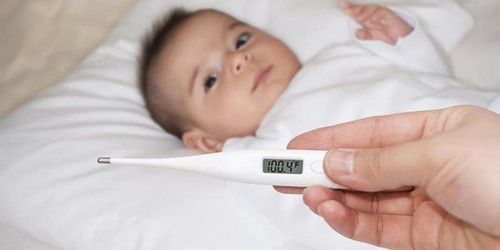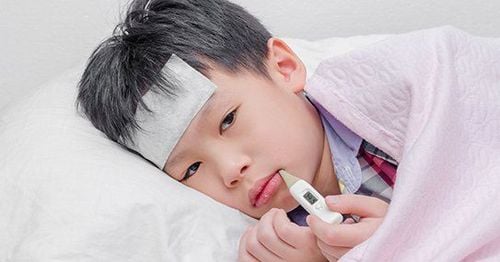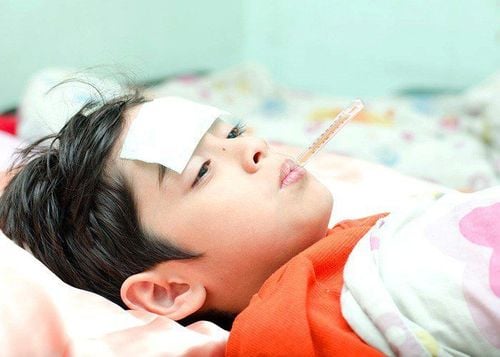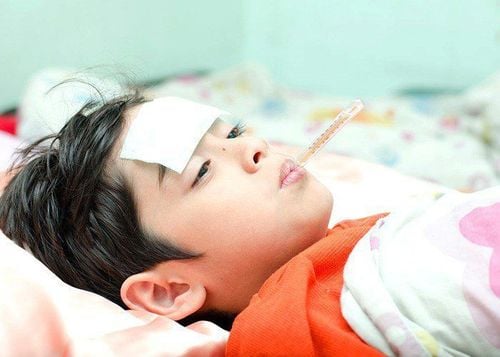You may have heard someone say that "sweating is good for you" or "sweating means you're about to recover." Many believe that dressing warmly, raising the room temperature (steam therapy), or exercising to promote sweating will reduce a fever quickly. So, is it safe to sweat when you have a fever?
1. Definition of fever and sweating
A fever occurs when your body's normal temperature rises. An increase of one degree or more can be a short-term fluctuation. You usually have a fever when your temperature is above 100.4°F (38°C). A body temperature of 103°F (39°C) is considered a high fever.
Children are considered to have a fever if their temperature is:
Over 100.4°F (38°C) when a rectal thermometer is used
Over 100°F (37°C) when an oral thermometer is used
99°F (37°C) when temperature is measured under the arm.
Sweating is part of the body's cooling system, so it makes sense that people think sweating while having a fever might help. Wearing extra clothes, wrapping in blankets, steam therapy, or physical activity will certainly make you sweat more. But there's no evidence that sweating will make you feel better.
Remember, not every fever needs to be treated. You only need to address the underlying cause of the fever. For example, a fever is often a sign of an infection, including flu and COVID-19.
2. Causes of fever
Fever can occur at any age due to various reasons, such as:
Heat exhaustion (heat stroke, heat exhaustion)
Inflammatory conditions, like rheumatoid arthritis
Malignant tumors
Certain medications, including antibiotics and medications for high blood pressure or anticonvulsants
Some vaccinations
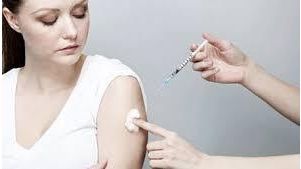
You should also consider the risk of exposure to infectious diseases, including various viral and bacterial infections, and some diseases that you can unintentionally spread to others, such as:
COVID-19
Chickenpox
Influenza
Measles
Strep throat
If you think you might have COVID-19, have a fever with chest pain and difficulty breathing, or have been exposed to a source of infection, isolate yourself from others. Do not go directly to the hospital; call the hotline first.
3. Sweating during a fever
The human body has its own mechanism for regulating temperature. Although body temperature fluctuates throughout the day, it remains within a standard range.
When an infection occurs, body temperature often rises, leading to a fever. Sometimes, to fight off the infection, you may experience chills or cold fevers as your body adjusts and balances its temperature.
Your temperature will return to normal once the infection subsides. However, an elevated temperature can make you feel hot and uncomfortable. During this time, your sweat glands become more active, and you start to sweat more to cool down, indicating that the fever is subsiding and you are recovering. On the other hand, deliberately making yourself sweat more will not treat the fever or address the underlying cause.
A fever can return even after sweating and having a normal temperature. For instance, in the case of COVID-19, you might feel better for a few days after the fever subsides, but symptoms can still return.
4. Does sweating during a fever make you feel better?
When you have a fever, you often sweat a lot. A fever itself is not a disease but a sign of an infection, inflammation, or another underlying condition. It indicates that your body is fighting off the cause of the illness and doesn't necessarily need treatment.
Making yourself sweat more won't necessarily reduce the fever, but it might provide some relief depending on the underlying cause.
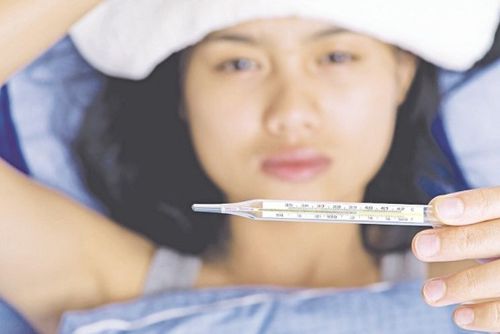
5. Potential Side Effects
According to a 2014 clinical review in athletes, fever increases when:
Dehydration
Metabolic demands increase, meaning the body needs more energy to raise its temperature
Thermoregulation is disrupted, making it difficult to maintain an accurate body temperature during exercise
Fever has several adverse effects on the musculoskeletal system, such as reducing endurance, stamina, and causing fatigue. Researchers concluded that strenuous exercise during a fever could worsen your condition.
Although fever causes the body to sweat a bit, trying to sweat more through exercise or increasing the room temperature can lead to several potential side effects to be aware of:
Higher fever: If you already have a high fever, sweating can increase your temperature. You lose heat through the skin, so it’s better not to use blankets and to remove excess clothing after experiencing a cold fever.
Dehydration: Even if you're just lying in bed, sweating from a fever can dehydrate you. This is why the standard advice during a fever is to drink plenty of fluids. Trying to sweat more can increase the risk of dehydration.
Exhaustion: Fighting an infection and high body temperature already drains a lot of your energy. Exercising to increase sweating will make you feel even weaker.
6. What happens if you sweat after a fever?
After experiencing a fever and shivering for a while, you might still maintain the habit of wearing too many clothes or keeping the room too warm. You may also rush back into physical activities too quickly, even though your body needs a few more days to recover.
The time it takes for you to return to normal sweating levels depends on the cause of the fever and your level of physical activity.
Some reasons you might experience night sweats include:
Stress
Anxiety
Certain medications, such as pain relievers, steroids, and antidepressants
Low blood sugar (hypoglycemia)
Menopause
If you continue to sweat more than usual or are concerned that you haven't fully recovered, see a doctor.
In conclusion, fever and sweating tend to go hand in hand. However, intentionally increasing sweat production while having a fever won't help you recover faster. Fever can be caused by various reasons, so it's important to recognize your symptoms and see a doctor if you feel your condition isn't improving.
Vinmec International General Hospital is a high-quality medical facility in Vietnam with a team of highly qualified doctors, extensively trained both domestically and internationally, and rich in experience.
The hospital is equipped with modern, state-of-the-art medical devices, housing some of the world's best machinery that can detect many difficult and dangerous diseases in a short time, effectively supporting doctors in diagnosis and treatment. The hospital's space is designed to meet 5-star hotel standards, providing patients with comfort, friendliness, and peace of mind.
Please dial HOTLINE for more information or register for an appointment HERE. Download MyVinmec app to make appointments faster and to manage your bookings easily.
Reference source: healthline.com




